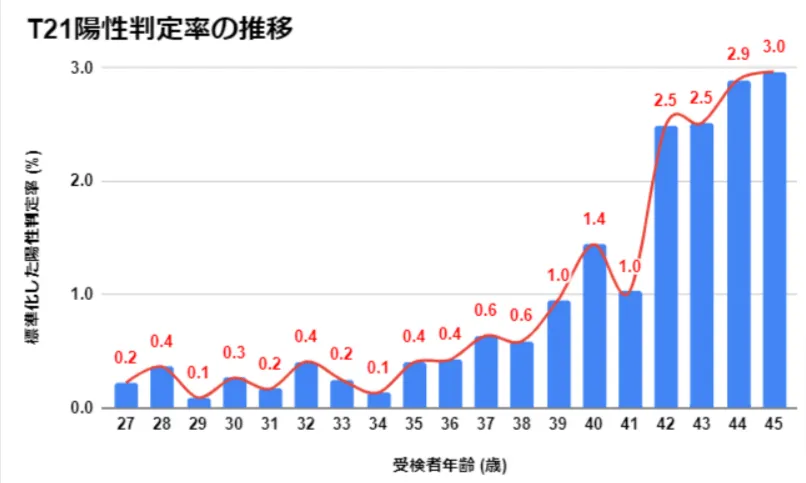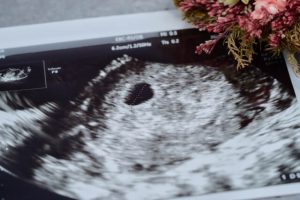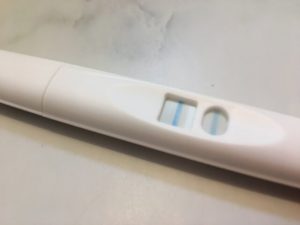We provide a detailed explanation of why the incidence of trisomy 21 increases with advanced maternal age.
The Increase in Advanced Maternal Age and the Risk of Down Syndrome
Changes in modern society have significantly impacted women’s lifestyles. In particular, women’s advancement in society and the trend toward later marriages have been major factors pushing up the age of pregnancy and childbirth, leading to an increase in births at advanced maternal age. This phenomenon has brought about numerous medical and social challenges. Women who give birth at age 35 and older face an increased risk of chromosomal abnormalities, including trisomy 21 (Down syndrome), which is a serious concern. This article delves into how advanced maternal age increases the risk of Down syndrome and explores the multiple factors behind this issue.
Definition and Current Status of Advanced Maternal Age
Generally, advanced maternal age is defined as 35 years or older. It is widely known that once this age is exceeded, the risks associated with childbirth, particularly the risk of chromosomal abnormalities, significantly increase. At Hiro Clinic, NIPT testing is conducted on a wide age range of women from 19 to 51 years old, and the results are quite interesting. Among those who tested positive for trisomy 21 (Down syndrome), women aged 35 and older were more than four times as likely to receive a positive result compared to women under 35.

【Survey Overview】
Survey Institution: Tokyo Sanitation Laboratory
Survey Subjects: Women aged 19 to 51 who underwent NIPT (Non-Invasive Prenatal Testing) at our clinic
Risks Associated with Advanced Maternal Age and Their Social Background
The above statistics provide clear evidence that advanced maternal age increases the risk of Down syndrome. However, behind this are not just biological risk factors, but also significant changes in women’s lifestyles and social backgrounds. The pursuit of economic independence and increased awareness of career development have led to a trend towards later marriages, resulting in more births at an advanced maternal age. As the crucial period for career advancement overlaps with the timing of marriage and childbirth, more women are choosing to postpone childbirth. Such choices should be respected as personal freedoms, but it is essential to raise awareness about the medical risks associated with advanced maternal age.
Medical Risks of Advanced Maternal Age
Understanding the risks associated with advanced maternal age and taking appropriate measures is extremely important for women considering childbirth in the future. The increased risk of chromosomal abnormalities significantly impacts decisions related to childbirth. Unfortunately, it is known that the rate of chromosomal nondisjunction increases with maternal age. Cohesin, a protein complex that holds sister chromatids together, has been shown to decrease in quantity and functionality with age, contributing to the increased rate of chromosomal nondisjunction.
In this regard, advanced diagnostic technologies such as NIPT (Non-Invasive Prenatal Testing) play a crucial role in prenatal risk assessment. This technology allows for the identification of risks before childbirth and enables women to discuss appropriate countermeasures with doctors and specialists. Particularly, NIPT is non-invasive and poses extremely low risk to both the mother and the fetus, making it a safe option for many women.
The Importance of NIPT
When planning for childbirth, it is essential to understand the risks and recognize the importance of utilizing early diagnostic technologies. Particularly, NIPT (Non-Invasive Prenatal Testing) plays a crucial role in providing valuable information and enabling appropriate medical intervention in cases where the risks associated with advanced maternal age are high. Given this context, it is increasingly necessary to understand and promote the importance of screening tests like NIPT and various other diagnostic technologies.
 中文
中文






















